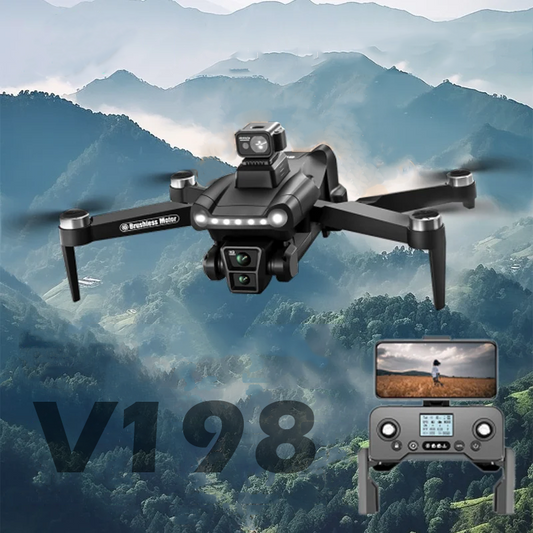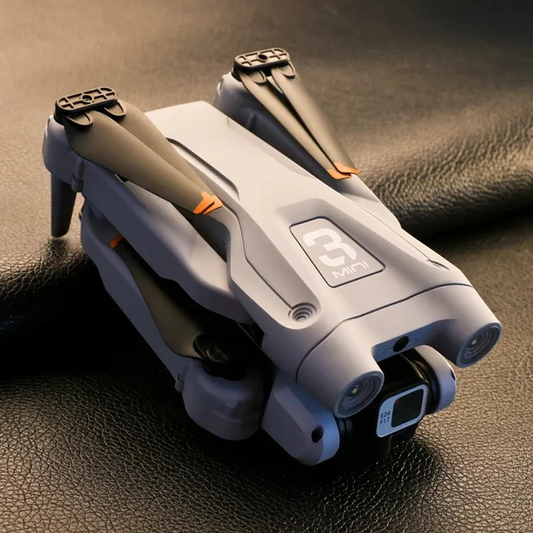How to Comply with Drone Flying Regulations in Different Countries

In recent years, the popularity of drones has soared, offering enthusiasts and professionals alike an unparalleled perspective from the skies. However, with this surge in drone usage comes the need for strict regulations to ensure safety and privacy. Navigating these regulations can be challenging, especially for those who travel internationally with their drones. In this comprehensive guide, we'll explore how to comply with drone flying regulations in different countries, helping drone pilots navigate the skies legally and responsibly.
1.Understanding the Importance of Compliance:

Before delving into specific regulations, it's crucial to understand why compliance is essential. Drone regulations are in place to protect airspace integrity, ensure public safety, and safeguard personal privacy. Violating these regulations can result in hefty fines, legal consequences, and even pose risks to people and property. Therefore, adhering to drone flying regulations is not only a legal requirement but also a moral obligation for responsible drone pilots.
2.Researching Local Regulations:

One of the first steps in complying with drone flying regulations abroad is to research and familiarize yourself with the specific rules of the country you plan to visit. Drone regulations can vary significantly from one country to another, covering aspects such as registration, airspace restrictions, flight permissions, and privacy laws. Utilize resources provided by aviation authorities or reputable online sources to gather up-to-date information on drone regulations in your destination country.
3.Registering Your Drone:
Many countries require drone owners to register their aircraft before flying. This process typically involves providing personal information, such as your name, address, and drone specifications, to the aviation authority or designated regulatory body. Failure to register your drone when required can result in penalties, so be sure to complete this step well in advance of your travel plans.
4.Understanding Airspace Restrictions:

Airspace restrictions play a critical role in drone flying regulations, as certain areas may be off-limits or require special permissions to fly. Commonly restricted areas include airports, military installations, national parks, and densely populated urban areas. Before taking to the skies, consult aviation charts, maps, or mobile applications that highlight restricted airspace zones and ensure compliance with local regulations.
5.Obtaining Flight Permissions:

In some countries, drone pilots must obtain permission or permits before flying in certain areas or under specific circumstances. This may involve submitting flight plans, obtaining clearance from air traffic control, or securing authorization from relevant authorities. Research the requirements for obtaining flight permissions in your destination country and allow ample time for processing, especially if applying for permits in advance.
6.Respecting Privacy Laws:

Privacy concerns surrounding drones have led many countries to enact laws governing their use in relation to personal privacy. These laws may restrict drone flights near private properties, prohibit surveillance activities, or mandate obtaining consent before capturing images or footage of individuals. Always respect privacy laws and exercise discretion when flying your drone in areas where privacy may be compromised.
7.Carrying Necessary Documentation:

When traveling with your drone abroad, it's essential to carry all necessary documentation to prove compliance with local regulations. This may include registration certificates, flight permits, insurance documents, and any relevant identification or licenses. Having these documents readily available can expedite interactions with authorities and demonstrate your commitment to responsible drone flying.
8.Staying Informed and Adapting to Changes:
Drone regulations are subject to change, with updates and revisions occurring regularly as technology evolves and new concerns arise. Stay informed about developments in drone regulations both domestically and internationally, and be prepared to adapt your flying practices accordingly. Joining online forums, subscribing to aviation newsletters, and following official social media channels can help you stay abreast of regulatory changes and best practices.
Navigating drone flying regulations in different countries requires diligence, research, and a commitment to compliance. By understanding and adhering to local regulations, drone pilots can enjoy the thrill of flight while respecting airspace integrity, ensuring public safety, and safeguarding personal privacy. Remember to research local regulations, register your drone when required, obtain necessary permissions, respect privacy laws, carry documentation, and stay informed about regulatory changes. With these practices in place, drone enthusiasts can explore the skies legally and responsibly, wherever their travels may take them.
Explore a variety of drones at our online drone store.Happy Flying!









